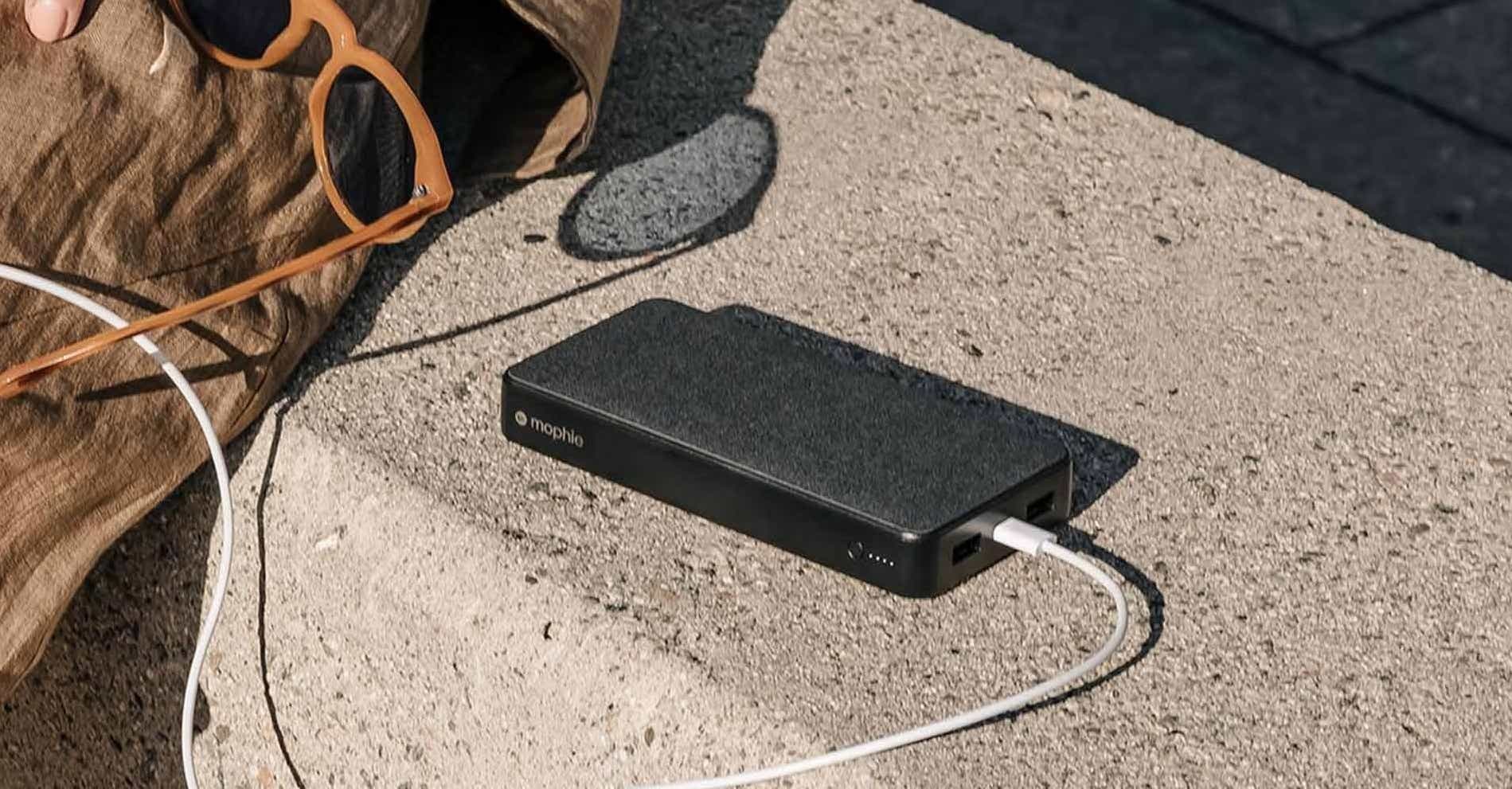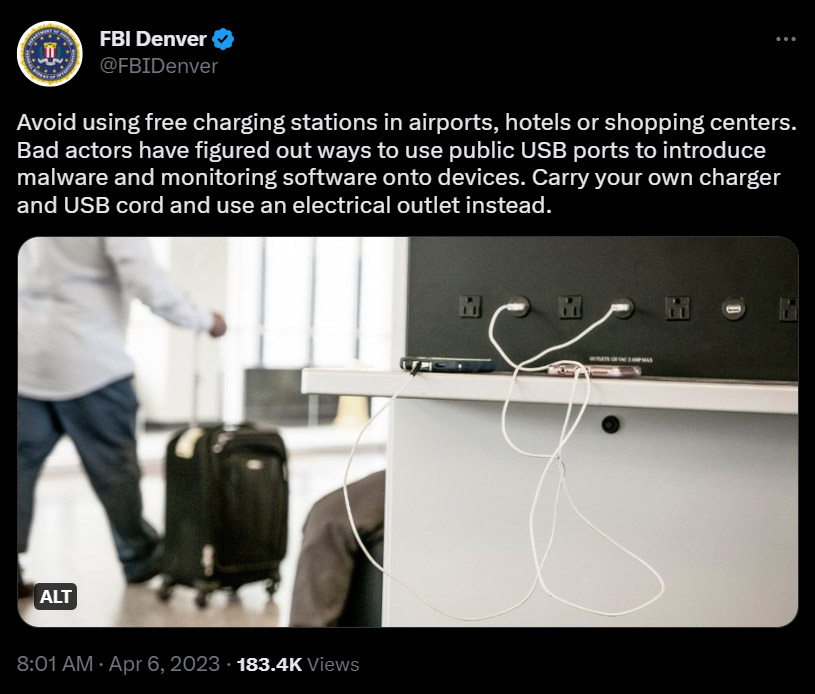Don't use public phone chargers, FBI warns

 Image: KwikBoost
Image: KwikBoostThe airport, the bar, the library — all places where your hard-working smartphone might need a little pick-me-up, and all places where free, public phone charging stations have been cropping up over the last few years. But according to a warning from the US Federal Bureau of Investigation, you might be better off letting your constant companion run down to zero.
the best portable charger
Mophie Powerstation XXL

 Read our reviewPrice When Reviewed:$69.95Best Prices Today:$53.99 at Best Buy | $69.95 at Dell
Read our reviewPrice When Reviewed:$69.95Best Prices Today:$53.99 at Best Buy | $69.95 at Dell
A tweet from the FBI’s Denver field office (via CNBC) warns that “bad actors” have been infiltrating public recharging stations in order to load up spyware and malware on smartphones through the USB port. For hackers, getting instant physical, wired access to a device is basically the Holy Grail of information security…and the defeat thereof. It’s a technique informally known as “juice jacking,” something that the FBI’s central website and various field offices have been warning about for a couple of years.

Smartphones running the latest security updates and default levels of access (for example, disabling USB debugging on Android) probably don’t have much to worry about, even if a public charging access point is compromised. But there’s always the chance of an undisclosed zero-day vulnerability, or an error in the latest update. The danger is especially potent for users whose phones are outside of the update window for Apple, Google, or other manufacturers.
A safer option is to charge up a USB battery or power bank at home and bring it with you.
Author: Michael Crider, Staff Writer

Michael is a former graphic designer who’s been building and tweaking desktop computers for longer than he cares to admit. His interests include folk music, football, science fiction, and salsa verde, in no particular order.
Recent stories by Michael Crider:
Update now! Chome plugs its fifth emergency zero-day exploit of 2024Ring of bogus web shops steals 850K credit card numbersIf you get a phone call from LastPass, it’s a scam



